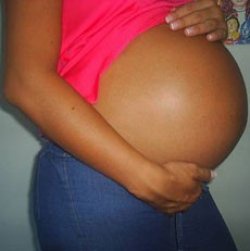About nine thousand (9,000) pregnant women in Ghana will die by 2020 if the high anaemia levels among expectant mothers are not brought under control.
According to the Ghana Demographic Health Survey, the number of pregnant women with anaemia soared from 65 per cent to 70 per cent between 2003 and 2008.
Children were also not spared as eight in every 10 under the age of five suffered from the condition.
Given the country's maternal mortality rate of 451 per 100,000 live births, it means that 20 per cent of the deaths can be attributed to anaemia.
Other causes of maternal mortality are pre-eclampsia, eclampsia and complications of unsafe abortions.
The latest CIA World Fact Book report ranked Ghana 41st in terms of maternal mortality in the world with 350 deaths per 100,000 live births.
The Deputy Chief Nutrition Officer at the Ghana Health Service, Esi Amoaful, recently said the statistics showed the need to increase investment in nutrition interventions.
She said despite the strides being made by Ghana to improve the health of the people and the economy, the data showed that citizens were not well nourished.
Amoaful said poor nutrition, resulting from deficiencies of particularly vitamin "A" and iodine, contributed to about half of all child deaths beyond early infancy, making it a major contributor to child mortality.
Every year, she noted, 12,000 children died because their “weight is too low for their age,” adding that, between 2011 and 2020, it was estimated that there could be as much as 97,000 deaths of children below five years of age (through stunting alone).
The nutrition expert said to help make things better, there was the need for optimal breastfeeding, appropriate complementary feeding, Vitamin "A" supplements, iron-folate supplements for pregnant and lactating women, salt iodisation and fortification of staple foods.
She also called for improved production, availability and consumption of diversified food, treatment of severe malnutrition with special foods such as ready-to-use therapeutic food and prevention of chronic under-nutrition.
The maternal mortality rate includes deaths during pregnancy or childbirth. Ghana recorded 1,022 maternal deaths in 2011, and 894 deaths in 2010.
Anaemia means the patient's blood does not have enough healthy red blood cells to carry oxygen to the tissues. During pregnancy, the body produces more blood to support the growth of the baby.
Health News of Saturday, 18 May 2013
Source: The Independent
Pregnant women in danger

















